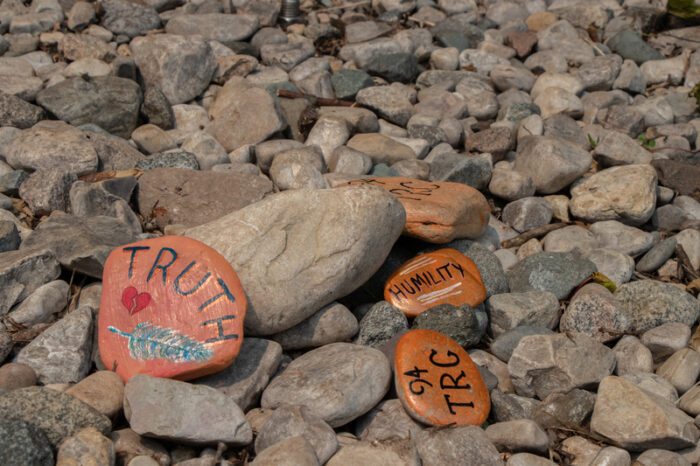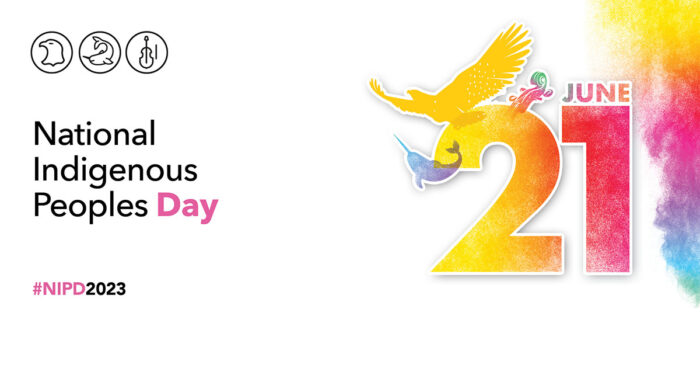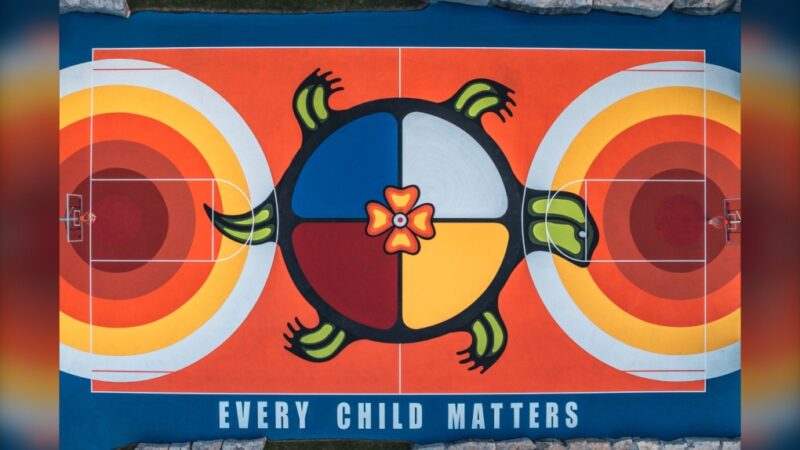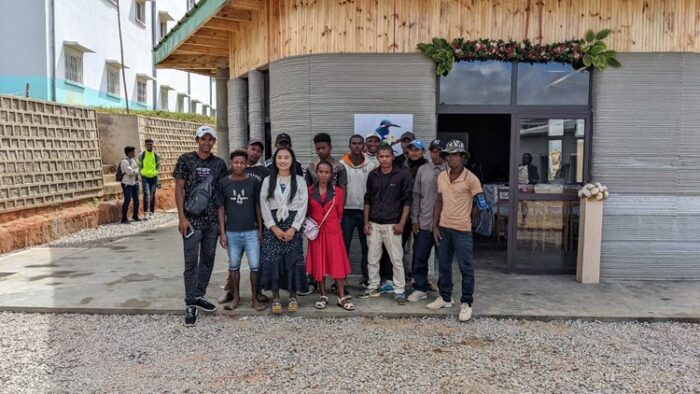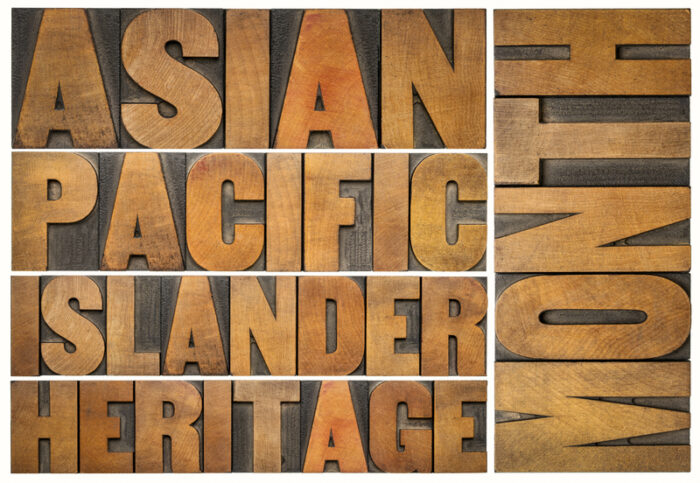May is Asian Heritage Month in Canada. To help celebrate, OWLconnected is running several stories this month that highlight the achievements, cultures, perspectives, and diversity of Canadians of Asian descent.
Today we're speaking with kid's author Angela Ahn. She has written two novels, including the brand new Peter Lee's Notes from the Field.
It tells the story of Peter Lee, an eleven-year-old soccer-playing, aspiring paleontologist (we love him already!). Peter is a Korean-Canadian living in Vancouver with his family, including his eight-year-old genius sister, L.B. The book begins as a quest for Peter to finally realize his dinosaur-digging dreams during a summer trip to the Royal Tyrrell Museum in Drumheller, Alberta. But life has other plans when he notices his beloved grandmother, Hammy, acting strangely.
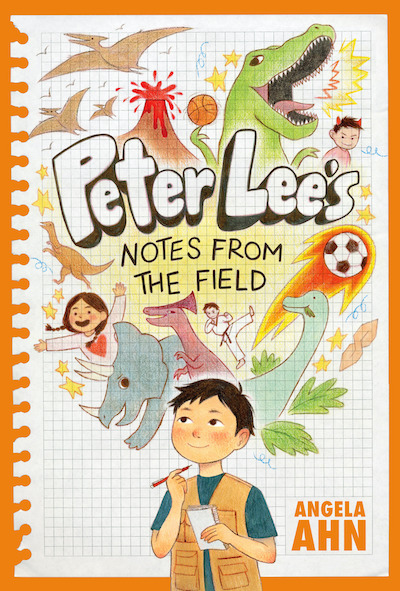
(Penguin Random House)
The book is both funny and caring, and we highly recommend it. A perfect summertime read!
Talking with Angela
Like the main characters in this book, Angela is also Korean-Canadian and lives in Vancouver. She was born in Seoul, South Korea, but her family came to Canada before she could walk. We talked with her about being a writer, her Asian heritage, and how she uses her gift of writing to talk about this heritage in Peter Lee.
OWLconnected: When did you know you wanted to become a writer?
Angela Ahn: I’m still not sure, to be honest! Maybe it was an idea sitting in the very back of my mind for a long time, but my first earnest effort was 2016.
OC: Did you have a favourite book as a kid?
AA: I wouldn’t say I was one of those kids that devoured books. I wasn’t. My sister was, so I knew I never read as much as she did. My dad may have made me resent reading when he’d try to get me to read things like Great Expectations when I was in Grade Five!
OC: But you clearly came around to books. You have worked as a teacher and librarian, and you're now an author. Why are books cool?
AA: Don’t you just love feeling lost in a book and forgetting where you are and any troubles you may be having while you are reading? It’s the best!
I remember when I went to library school in 2000–2001. We talked about e-books and how they were going to 'kill' printed books. Well, that hasn’t happened, has it? I tried an e-reader for a while, and now, I never use it. There is something magical about holding that rectangle block of paper in your hands and flipping the pages to find out what happens.
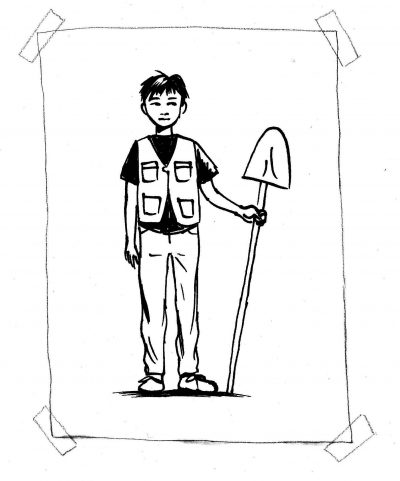
Peter Lee, as 'drawn by his grandmother', in Peter Lee's Notes from the Field. (Illustration by Julie Kwon; Courtesy of Penguin Random House)
OC: Let's talk about Peter Lee. He is athletic, but has asthma. He is intelligent, but full of doubt. He is tall and stands out, but is also a bit shy. How did you create him?
AA: He started off as a whiner, I’ve got to admit it! He just resented L.B. and was angry all the time. Nobody can cheer for a person like that. I wanted to round him out. I thought it was important to not leave him as a 'boy who plays sports'. I wanted him to have a more complex interest that maybe didn’t seem 'cool' to his friends, but his passion for it is so great that he doesn’t care what other people think.
OC: Meanwhile, his younger sister, L.B., is basically an eight-year-old university student. Where did your idea for her come from?
AA: My son was in a gifted program in elementary school. I met a whole group of amazing, quirky, charming, irreverent souls as a result. But at the heart, they were all just kids who wanted more than anything else a safe space to be themselves. Like tall boys may be burdened with the expectation of excelling in sports, smart children are often expected to be mature beyond their years. L.B. was loosely based on my daughter’s energy level as a young girl (exaggerated for comedic effect). My son was pretty mellow, and generally lost in books, but this little girl, I didn’t know what to do with her. She proclaimed at the ripe old age of 2.5, “I don’t want to nap anymore.” And after she said that, she never did. She was a spunky little thing, and the model for L.B.
OC: Peter and L.B.'s relationship is really fun. Why did you want to have siblings in the book?
AA: This relationship is the one I enjoyed writing the most. I felt a lot of kids could relate to having a sibling that made them want to pull their hair out, but at the same time, they would do anything for.
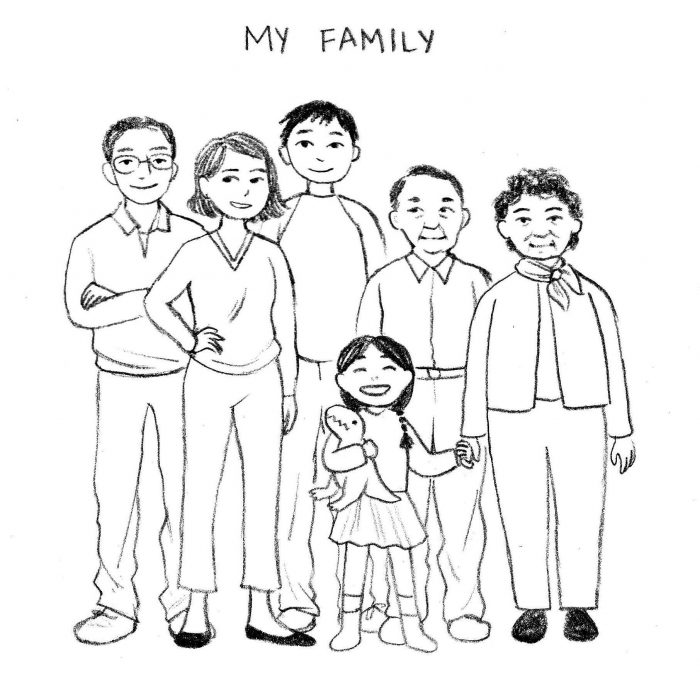
Peter's drawing of his family in Peter Lee's Notes from the Field. (Illustration by Julie Kwon; Courtesy of Penguin Random House)
OC: A lot of the book discusses Korean culture and the complex experience of being of Asian descent in Canada. How some traditions and parts of culture get celebrated freely, but others get hidden. Can you talk about some of the parts of being an immigrant that you wanted to explore in this book?
AA: Thank for you this question. It really hits at the heart of what the immigrant experience is all about for me.
My family has been in Canada for 47 years. There are parts of Korean culture that I don’t know, because my parents didn’t teach me. For example, I honestly thought Lunar New Year was a Chinese thing until about 2 years ago, when I realized Koreans (in Korea) celebrate it, too. Wow, did I feel silly. Here, in Vancouver, Lunar New Year was something my family never celebrated.
But then there are parts of our heritage that we hold onto fiercely. My mother makes her grand kids Korean food for their birthdays without fail. I think most families pick and choose what to keep and what to give up. You cannot keep all of it—that’s the reality of immigrating.
For example, my children do not have Korean middle names, which is a thing we struggled with. It’s this push and pull that I deal with constantly.
OC: You came to Canada from Korea as a very young girl. Now you have kids of your own. What do you think has changed about being of Asian descent in Canada? What's better? What's not?
AA: I will never forget a moment in my elementary school class in Richmond, B.C. when a boy taunted me with a racial slur involving eyes, and Chinese and Japanese people. I won’t repeat it here.
Even though I was being attacked and while I knew it was racially motivated, I remember this uncomfortable feeling of being lumped together with similar but decidedly different ethnic groups. To that boy, East Asian people were all the same, it made no difference to him what I was. To me, it just really underscored my invisibility. I wasn't part of either of those groups he pointed out [Chinese and Japanese]. I wondered if maybe my ethnicity wasn't worth even distinguishing.
As a Korean, I have long felt ignored, even in these painful moments. I used to count the number of Ahn’s in the local phonebook as my unofficial way of tracking Korean immigration. There were 12 families for almost 25 years. Ahn is not a common Korean family name and this was my way of always hoping for more people with familiar names so that I maybe, maybe, one day, I could finally be seen.
I think for the first time in my life—maybe in the last five years—Koreans are seen and known as a people distinct from others in East Asia by mainstream Western society. With the rise in popularity of Koreans in entertainment, I am in awe of how very Korean things are put at the forefront of Western culture. It fills me with a sense of pride I didn’t know I was allowed to have.
I love how Asian North Americans are no longer perceived as being silent about racism. We need to talk more about it. I hope we can keep up this momentum.
OC: At the end of Peter Lee, you encourage readers to check out the Kukkiwon Taekwondo Demonstration Team, which is featured in a key scene of the book. If you could pass on one other part of Korean culture that you think everyone should experience, what would it be?
AA: You must, you must go to an authentic Korean BBQ restaurant where you cook meat in the middle of the table on a built-in tabletop grill. You must also eat kimchi with the meat. If you pass on the kimchi, you’re not ready yet. It’s part of the experience, so go big or stay home! Please know that you will need to change your clothes after you eat because the meaty smoke aroma will permeate everywhere. But honestly, it’s so delicious it’s worth it. (I apologize to vegetarians for this suggestion!)
OC: Thanks for chatting with us, Angela. Congratulations on your book!
AA: Bye!
Peter Lee's Notes from the Field is available now from Penguin Random House.
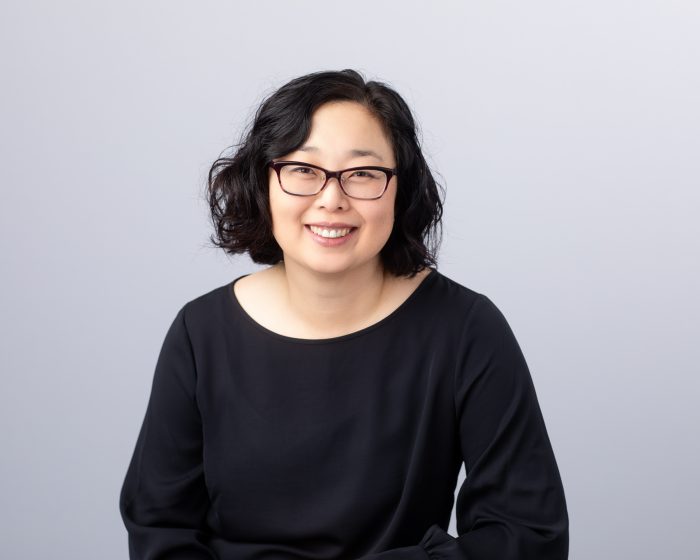 Angela worked as a teacher and a librarian before becoming an author. (Penguin Random House)
Angela worked as a teacher and a librarian before becoming an author. (Penguin Random House)

